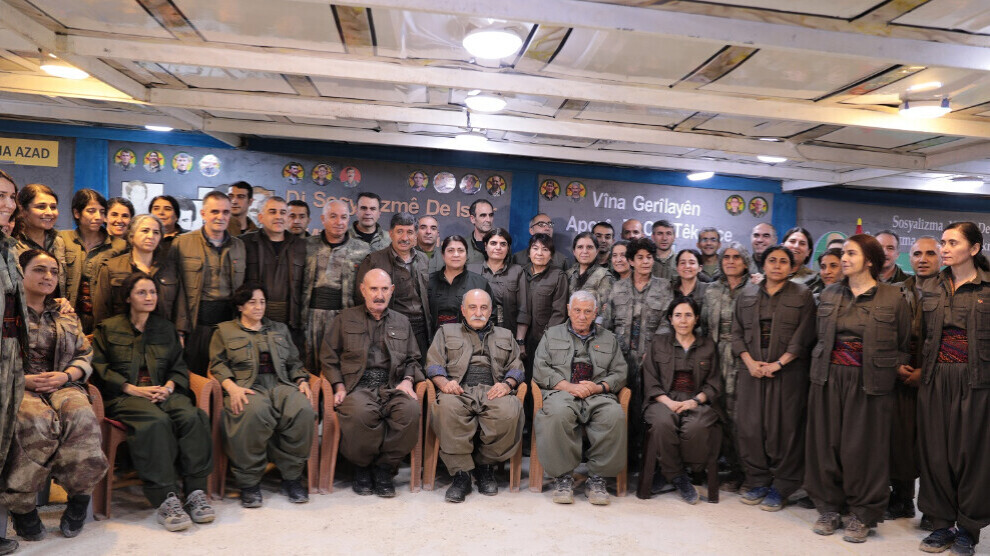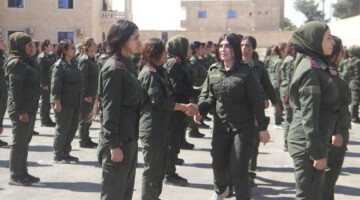On February 27, Abdullah Öcalan took a historic step with his ‘Call for Peace and a Democratic Society.’ He placed change and transformation at the forefront of the PKK's agenda. While the PKK announced that it would act in accordance with this call, Öcalan said, “The PKK should convene its congress, dissolve itself, and end the armed struggle.” The PKK then announced that it had held its congress between May 5 and 7.
On May 12, the PKK announced that it was ending its armed struggle in order to pave the way and lay the groundwork for new initiatives and organizations that would be much stronger and more ambitious than when the PKK was founded.
The PKK is taking the struggle it has waged for more than fifty years to a new stage. It will move toward new organizations and methods of struggle. The PKK and its struggle will not disappear or come to an end.
The resistance and organization led by the PKK for half a century has created a great deal of accumulated experience. Based on this experience, it will restructure itself in accordance with the new era. This requires a major change and transformation. As the Kurdish people and their organizations move toward change and transformation, Turkey and the region cannot remain the same. Turkey must also undergo change and transformation. Politically and legally, the Turkish state must position itself to include the Kurds.
If the state is to be the state of the Kurds as well, it must abandon denial and disregard and undergo intellectual and legal transformation. If the process is sabotaged or derailed, a return to conflict will inevitably follow.
Öcalan has taken on a historic responsibility. While the AKP government has not taken any serious steps or made any legal changes, Öcalan has taken on the responsibility of dissolving the PKK and abandoning armed struggle. We do not know whether those who govern Turkey will understand the importance and historical significance of this and act accordingly. For now, their statements appear positive. However, whether these will remain mere words or be put into practice remains to be seen.
If the Turkish state makes peace with the Kurds in Northern Kurdistan and recognizes their existence, this will naturally affect other parts as well, mainly Rojava and North-East Syria because the work, resistance, and organization in this region have been inspired by the ideas and struggle of Öcalan. We are talking about a region where Öcalan spent twenty years organizing. The Turkish state has relentlessly and multifacetedly worked to break Öcalan’s influence and eliminate the gains of the revolution, attacking, occupying, and forming alliances. A fierce war and siege took place in Rojava.
The Turkish state has always referred to these attacks and policies as “fighting against the PKK and terrorism.” However, in an environment where the PKK has been dissolved and the armed struggle has ended, there is no longer any justification for Turkey's hostility and attacks against Rojava. If Turkey applies the law of brotherhood to the Kurds within its borders, its insistence on hostility toward the Kurds in Syria would also lose its meaning. This is the natural course of events; Turkey must return to a policy of reconciliation and brotherhood with the Kurds abroad as well.
Öcalan’s project aims to maintain the solution in Turkey in other parts as well. His goal is the Democratic Kurdistan Union. In other words, the aim is not to establish a separate state or federation, but a democratic union. This solution is also in the interests of other states. Thus, the Kurdish issue will cease to be a source of conflict and tension in the region. The path to peace and democratic transformation in the region will be opened. Here, no one will lose; on the contrary, everyone will gain.
Öcalan’s solution also encompasses the democratization of the Middle East. However, we do not know whether this solution will be implemented or whether Turkey will return to its familiar policies. In Syria, the Turkish government does not view the Kurds as an ally; it has chosen to side with HTS (Hayat Tahrir al-Sham). For months, it attacked the Tishrin Dam and other regions. Its goal was to completely take over North and East Syria and eliminate autonomy. Whether it will change its stance remains unclear.
The Autonomous Administration of North and East Syria and revolutionary forces should not be overcome by languor just because the attacks have stopped for now and there is a certain softening. This is because Turkey has not disbanded the armed groups and mercenaries it gathered under the name SNA (Syrian National Army). The people of Afrin still cannot return to their land. Turkey continues to negotiate with regional states to remove the SDF and autonomy and to bargain with powers such as the US.
For this reason, both the government and the people must continue to strengthen their self-defense and remain prepared for any eventuality.














